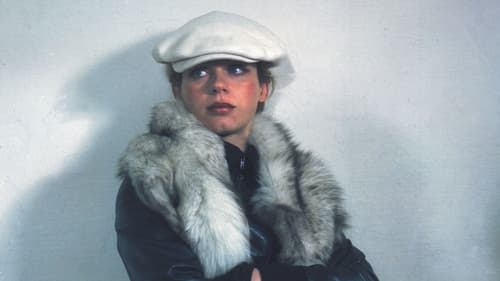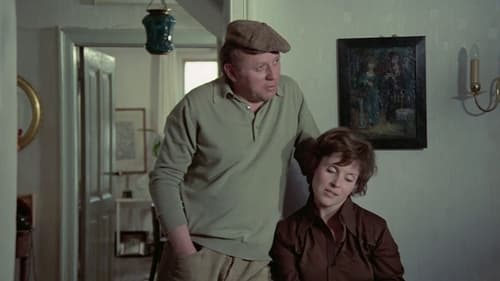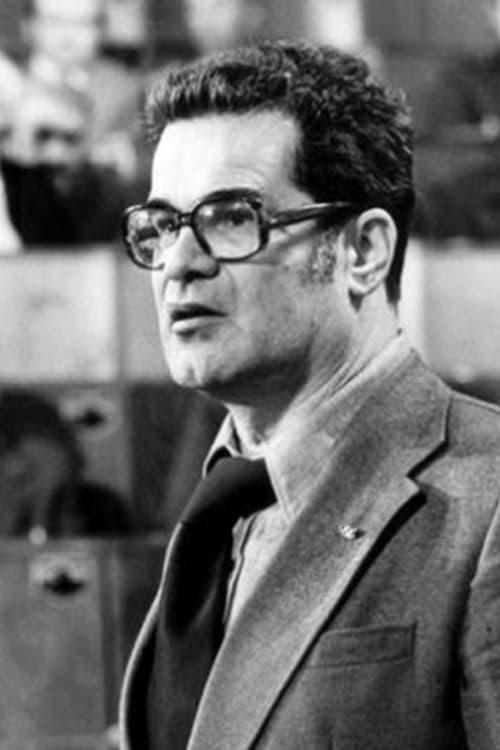Konrad Wolf
Nacimiento : 1925-10-20, Hechingen, Germany
Muerte : 1982-03-07
Historia
Konrad Wolf was born in Hechingen in 1925 and died in Berlin in 1982. In 1933, his family emigrated to the Soviet Union. At the age of 18, he joined the Red Army and came to Germany as a lieutenant in 1945. He studied Directing at the Moscow Film School in 1949 and worked as an assistant director to Kurt Maetzig at the DEFA Studios in 1953.

Director
"Busch singt" consists of 6 films "About the first part of our century" and does not present Ernst Busch only as a singer but is a film with and about Busch as a chronicler and fighter for communist ideals of his time. Konrad Wolf died during the production, he directed part 3 "1935 oder Das Faß der Pandora" and part 5 "Ein Toter auf Urlaub".

Writer
Sunny is the singer of band trying to establish itself in the music-scene of East-Berlin. They play regular gigs in small towns, but Sunny feels out of touch with the audience and her life as a whole. She begins a relationship with the amateur saxophonist and studied philosopher Ralph who writes her a very personal song - but his obsession with death and unfaithful lifestyle is not for her. After getting into a quarrel with a band member who harasses her and telling off a show-host she is thrown out of the band. Abandoned, she struggles to regain control over her life.

Director
Sunny is the singer of band trying to establish itself in the music-scene of East-Berlin. They play regular gigs in small towns, but Sunny feels out of touch with the audience and her life as a whole. She begins a relationship with the amateur saxophonist and studied philosopher Ralph who writes her a very personal song - but his obsession with death and unfaithful lifestyle is not for her. After getting into a quarrel with a band member who harasses her and telling off a show-host she is thrown out of the band. Abandoned, she struggles to regain control over her life.

Writer
In a Russian POW camp, four Germans determined to end WWII agree to pose as Red Army soldiers. Are they patriots or traitors, heroes or opportunists? Although they go to the frontlines, their new Russian comrades are initially unsure whether to trust them. Three of them then accept a mission behind German lines, but they are unprepared to fire upon their countrymen and it ends up costing the life of a Russian soldier. In the meantime, the fourth man has fallen in love with Russian radio operator Svetlana. After being criticized by the other Russians, he too agrees to participate in the mission..

Director
In a Russian POW camp, four Germans determined to end WWII agree to pose as Red Army soldiers. Are they patriots or traitors, heroes or opportunists? Although they go to the frontlines, their new Russian comrades are initially unsure whether to trust them. Three of them then accept a mission behind German lines, but they are unprepared to fire upon their countrymen and it ends up costing the life of a Russian soldier. In the meantime, the fourth man has fallen in love with Russian radio operator Svetlana. After being criticized by the other Russians, he too agrees to participate in the mission..

Writer
In this film, Wolf and scriptwriter Wolfgang Kohlhaase explore the role of art and the artist in socialist society. A sculptor questions the reception and value of his work, in a delicately nuanced narrative interweaving personal memories, historical dilemmas, and political defeats.

Director
In this film, Wolf and scriptwriter Wolfgang Kohlhaase explore the role of art and the artist in socialist society. A sculptor questions the reception and value of his work, in a delicately nuanced narrative interweaving personal memories, historical dilemmas, and political defeats.

Director
Adaptation of Antoine de Saint-Exupéry's novella for East German television, produced in 1965/66, not shown until 1972.

Director
A socialist story of "atoms for peace" and compulsory labor in an East German uranium mine under Soviet control.

Writer
As a painter in the court of King Carlos IV, Goya has attained wealth and reputation. He believes in King and Church, yet he is also a Spaniard who dearly loves his people. This contradiction presents him with a dilemma.

Director
As a painter in the court of King Carlos IV, Goya has attained wealth and reputation. He believes in King and Church, yet he is also a Spaniard who dearly loves his people. This contradiction presents him with a dilemma.

Writer
Gregor is a young soldier entering Germany with the victorious Soviet troops at the end of WWII. But he is also the child of left-wing Germans who fled from Hitler and spent the war in the Soviet Union. As a result, his return to Germany is ambivalent; he finds he is a stranger in his own land. As they enter Germany, Gregor begins to realize that he is different from all his comrades in arms, for this defeated land is his home country, the Germans he meets are his compatriots. He is a victor, but also one of the vanquished. He attempts to understand the Germans he meets along his way, but he is a 19-year-old: inquisitive, occasionally uncomprehending and repeatedly dismayed by the atrocities and lies he encounters.

Director
Gregor is a young soldier entering Germany with the victorious Soviet troops at the end of WWII. But he is also the child of left-wing Germans who fled from Hitler and spent the war in the Soviet Union. As a result, his return to Germany is ambivalent; he finds he is a stranger in his own land. As they enter Germany, Gregor begins to realize that he is different from all his comrades in arms, for this defeated land is his home country, the Germans he meets are his compatriots. He is a victor, but also one of the vanquished. He attempts to understand the Germans he meets along his way, but he is a 19-year-old: inquisitive, occasionally uncomprehending and repeatedly dismayed by the atrocities and lies he encounters.

Screenplay
After a breakdown, Rita returns to her childhood village in 1961. As she recovers, she remembers the past two years: her love for the chemist Manfred, ten years her senior; how his enthusiasm about his new chemical process turned to bitter disappointment in the face of official rejection; how he escaped to West Berlin a few weeks before the Wall was built and hoped that she would follow him …

Director
After a breakdown, Rita returns to her childhood village in 1961. As she recovers, she remembers the past two years: her love for the chemist Manfred, ten years her senior; how his enthusiasm about his new chemical process turned to bitter disappointment in the face of official rejection; how he escaped to West Berlin a few weeks before the Wall was built and hoped that she would follow him …

Writer
Professor Hans Mamlock is the distinguished chief of surgery in a university hospital. The year is 1933, and although the Professor is Jewish, he remains unconcerned with politics and the growing Nazi threat. Mamlock identifies strongly as a German, and he believes his culture to be simply incapable of the common barbarism associated with the Nazi party. Accordingly, he shows little understanding for people with strong or unpopular political views, such as Walter, a patient, and Rolf, his own son. Indeed, when Rolf joins the communists in resisting the Nazis, Mamlock throws him out of his house. As the persecution of Jews intensifies during the 1930s, Mamlock's own daughter is targeted for anti-Semitic attacks at her school...

Director
Professor Hans Mamlock is the distinguished chief of surgery in a university hospital. The year is 1933, and although the Professor is Jewish, he remains unconcerned with politics and the growing Nazi threat. Mamlock identifies strongly as a German, and he believes his culture to be simply incapable of the common barbarism associated with the Nazi party. Accordingly, he shows little understanding for people with strong or unpopular political views, such as Walter, a patient, and Rolf, his own son. Indeed, when Rolf joins the communists in resisting the Nazis, Mamlock throws him out of his house. As the persecution of Jews intensifies during the 1930s, Mamlock's own daughter is targeted for anti-Semitic attacks at her school...

Director
This film continues the story of radio operator Ludwig Bartuschek from “The Sailor’s Song”. Near the end of the Weimar Republic, Bartuschek (Erwin Geschonneck) is working as a mechanic in the Sperber airplane plant. Director Dehringer offers him the opportunity to train as an airplane constructor if he is willing to give up his communist beliefs under oath. Bartuschek will not allow himself to be bought and instead joins the underground resistance movement.

Director
Stationed in a secluded Bulgarian village in 1943, Walter - a German Wehrmacht sergeant and artist - lives in almost idyllic distance from the war. Then a transit camp is set up for Jews arriving from Greece. When Ruth, one of the internees, asks Walter to help a pregnant woman, the two form an unlikely bond.

Writer
Berlin, early 1930s. Lissy, a young woman raised in a socialist working-class family, marries a clerk who promises her a better life. During the depression, however, he gets fired and can’t find a new job. Desperate for companionship and money, he falls for Nazi propaganda and joins the Storm Troopers. Lissy's brother, who for a time sympathized with the communists, now also wears the SA uniform. When he is killed by the Nazis—because of hisoppositional ideas—Lissy starts questioning things and makes a difficult and potentially dangerous decision.

Director
Berlin, early 1930s. Lissy, a young woman raised in a socialist working-class family, marries a clerk who promises her a better life. During the depression, however, he gets fired and can’t find a new job. Desperate for companionship and money, he falls for Nazi propaganda and joins the Storm Troopers. Lissy's brother, who for a time sympathized with the communists, now also wears the SA uniform. When he is killed by the Nazis—because of hisoppositional ideas—Lissy starts questioning things and makes a difficult and potentially dangerous decision.

Director
The authorities expect the case of Friedel Walter, alias "Dr. Mueller," to be a straightforward one: he was working as a doctor without proper credentials under a false name. But Mehlin, the man in charge of his case, knows that there is more to the story. When he was injured fleeing from a concentration camp, resistance worker Irene asked her medical student boyfriend Walter to give him medical care.

Writer
Actually, the Düsseldorf musician and composer Peter Weselin only wanted to spend his placid vacation with his uncle in the Vogtland village of Klingenthal. But in the city famous for its manufacture of musical instruments, the annual music festival is about to start. For the festival, the accordion factory asks Peter for a large composition for the symphonic orchestra. Furthermore, cute Anna asks him to write a pop song for her youth dance band. Thus, Peter finds no rest during his vacation.

Director
Actually, the Düsseldorf musician and composer Peter Weselin only wanted to spend his placid vacation with his uncle in the Vogtland village of Klingenthal. But in the city famous for its manufacture of musical instruments, the annual music festival is about to start. For the festival, the accordion factory asks Peter for a large composition for the symphonic orchestra. Furthermore, cute Anna asks him to write a pop song for her youth dance band. Thus, Peter finds no rest during his vacation.





